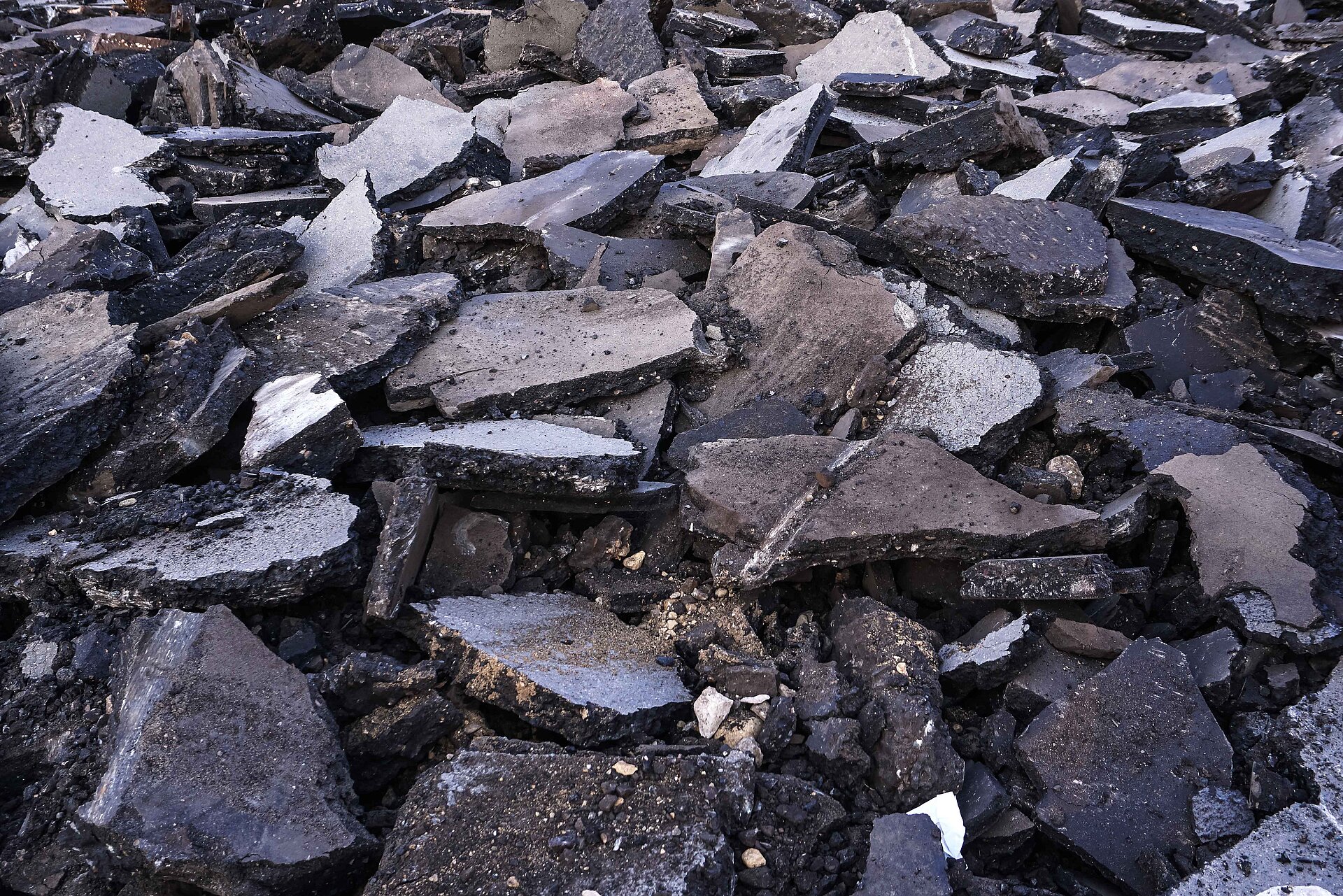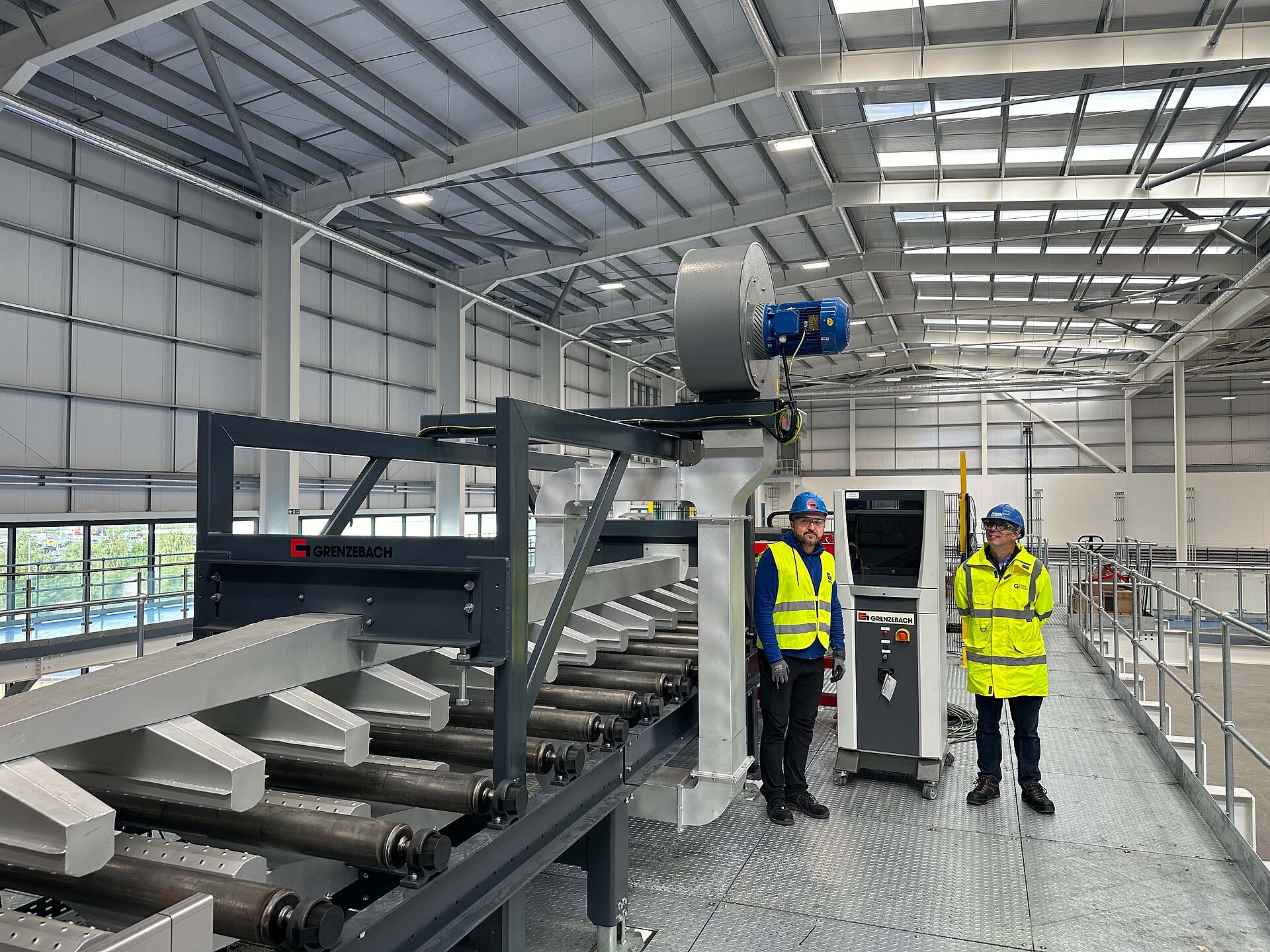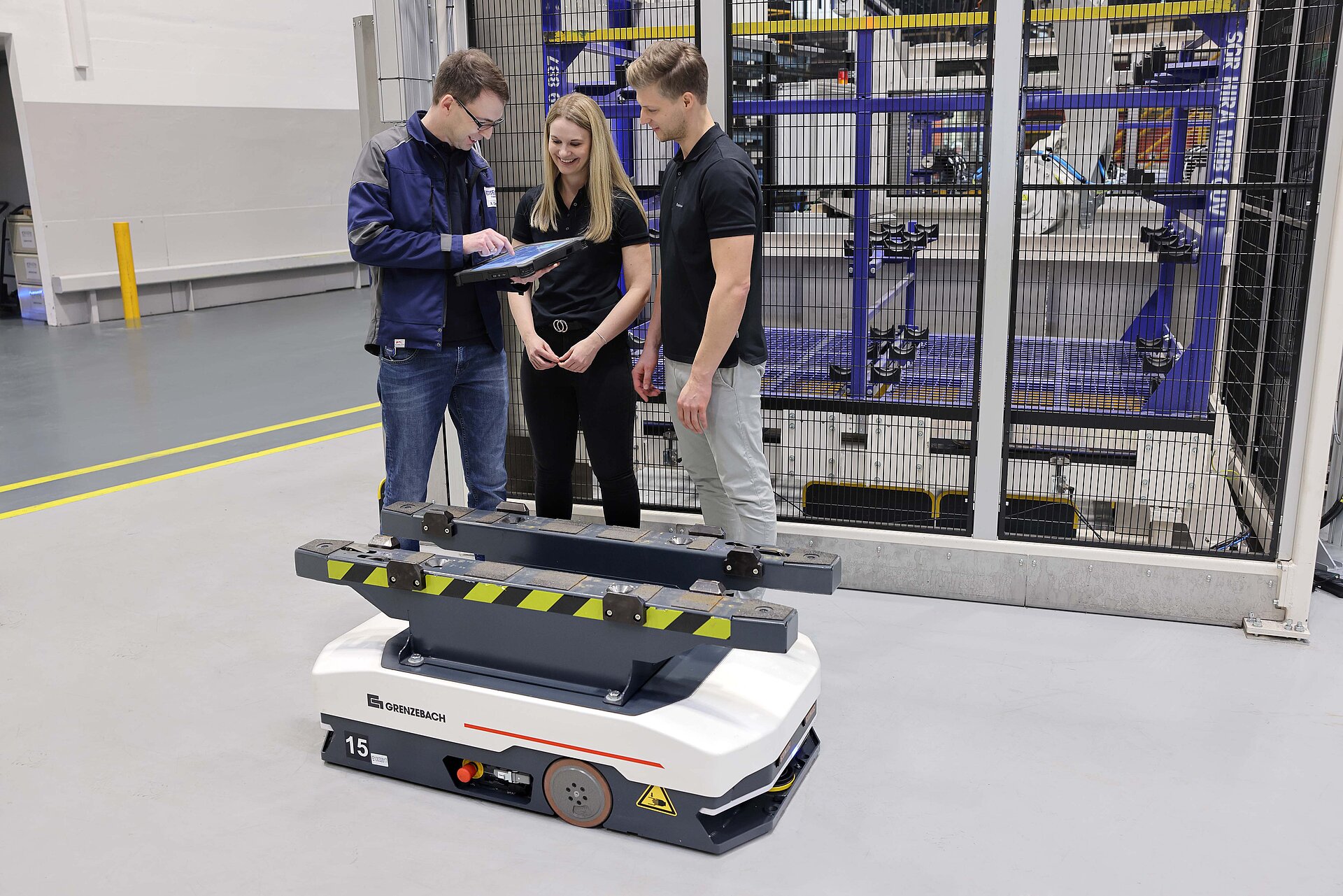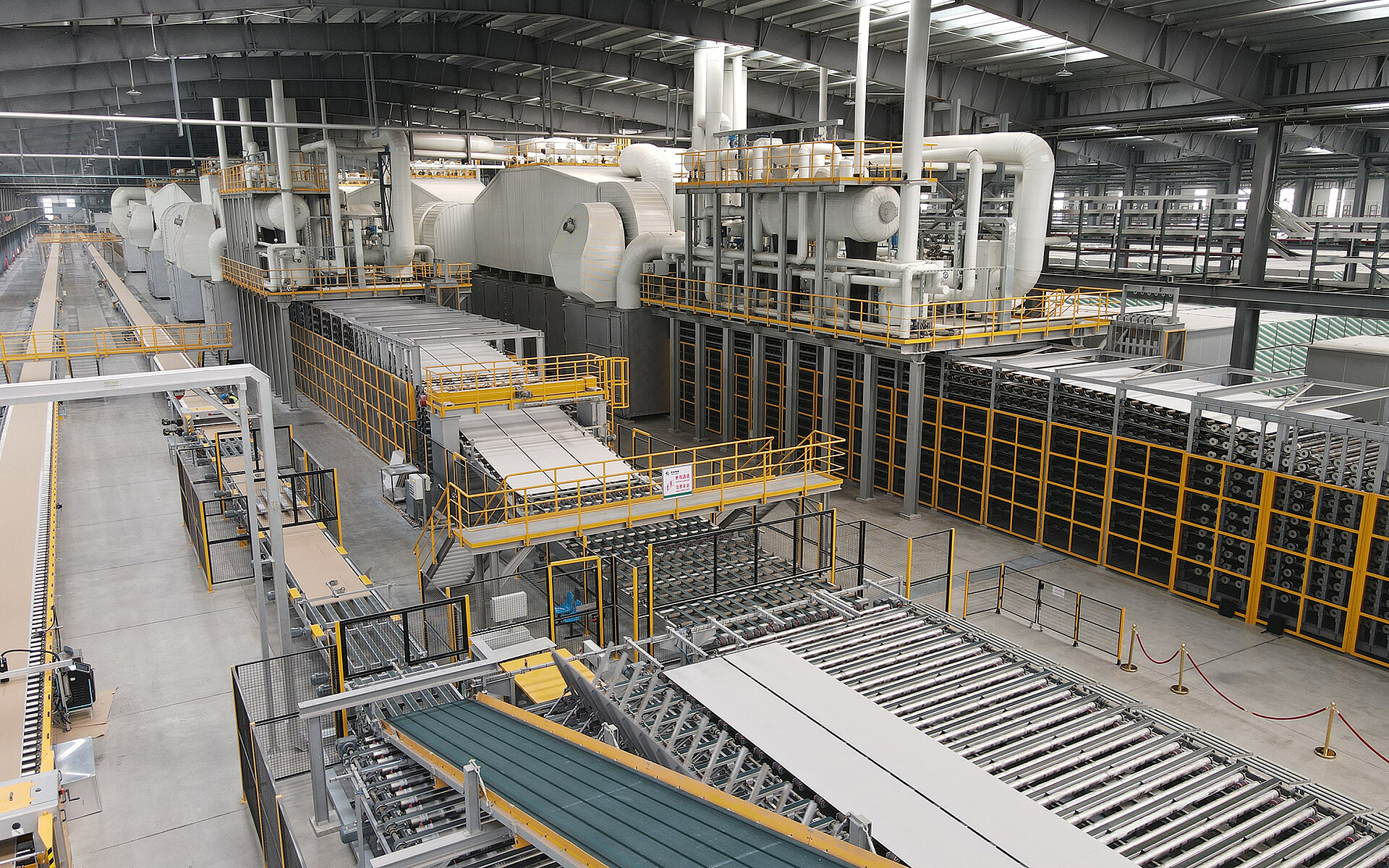Grenzebach and Fraunhofer UMSICHT Revolutionize Asphalt Recycling for Tar-Containing Road Demolition Waste
DECENTRALIZED. ECO-FRIENDLY. COST-EFFECTIVE.
Approximately 600,000 tons of carcinogenic building material are currently exported to the Netherlands annually, where Europe's only plants for thermal asphalt recycling are located. The resulting costs of transportation, as well as the environmental impact, are enormous. Grenzebach and the Fraunhofer Institute UMSICHT have jointly developed an innovative process that reduces the cost and environmental impact of asphalt recycling from road demolition waste containing tar and pitch. The so-called InnoTeer process can be applied decentrally, typically in German asphalt mixing plants, reducing recycling costs and ensuring the required quality of the recycled material, including surface and binder courses.
Thermal Recycling Is Mandatory
In 2023, the so-called "Mantelverordnung" created new framework conditions for treating PAH-contaminated, tar-containing road demolition waste. The road demolition waste must be thermally recycled if the limits are exceeded. The brown and hard coal tars and pitches previously used in the asphalt mix are classified as carcinogenic due to their high polycyclic aromatic hydrocarbons (PAHs) content and must be reliably neutralized during processing.
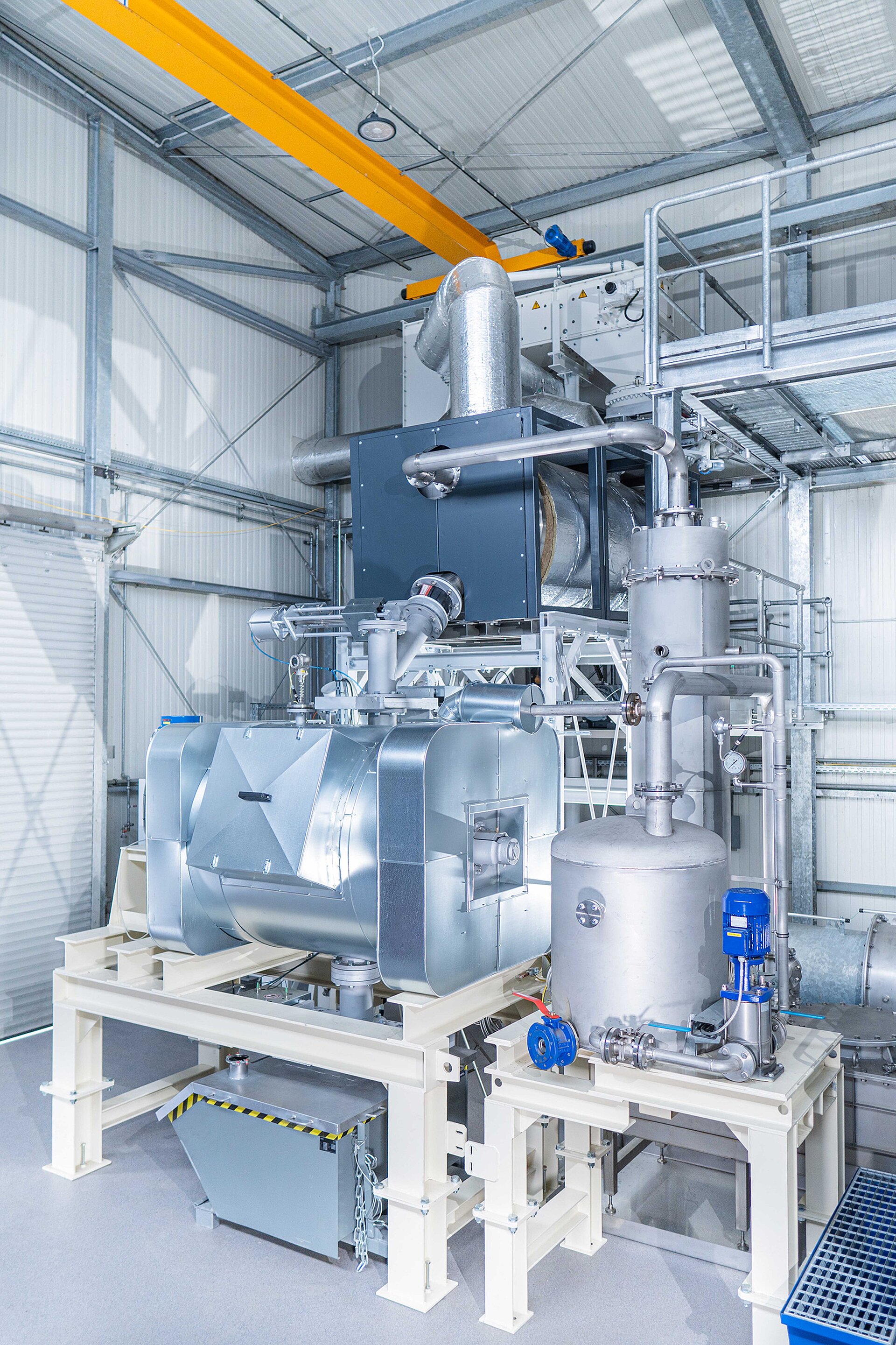
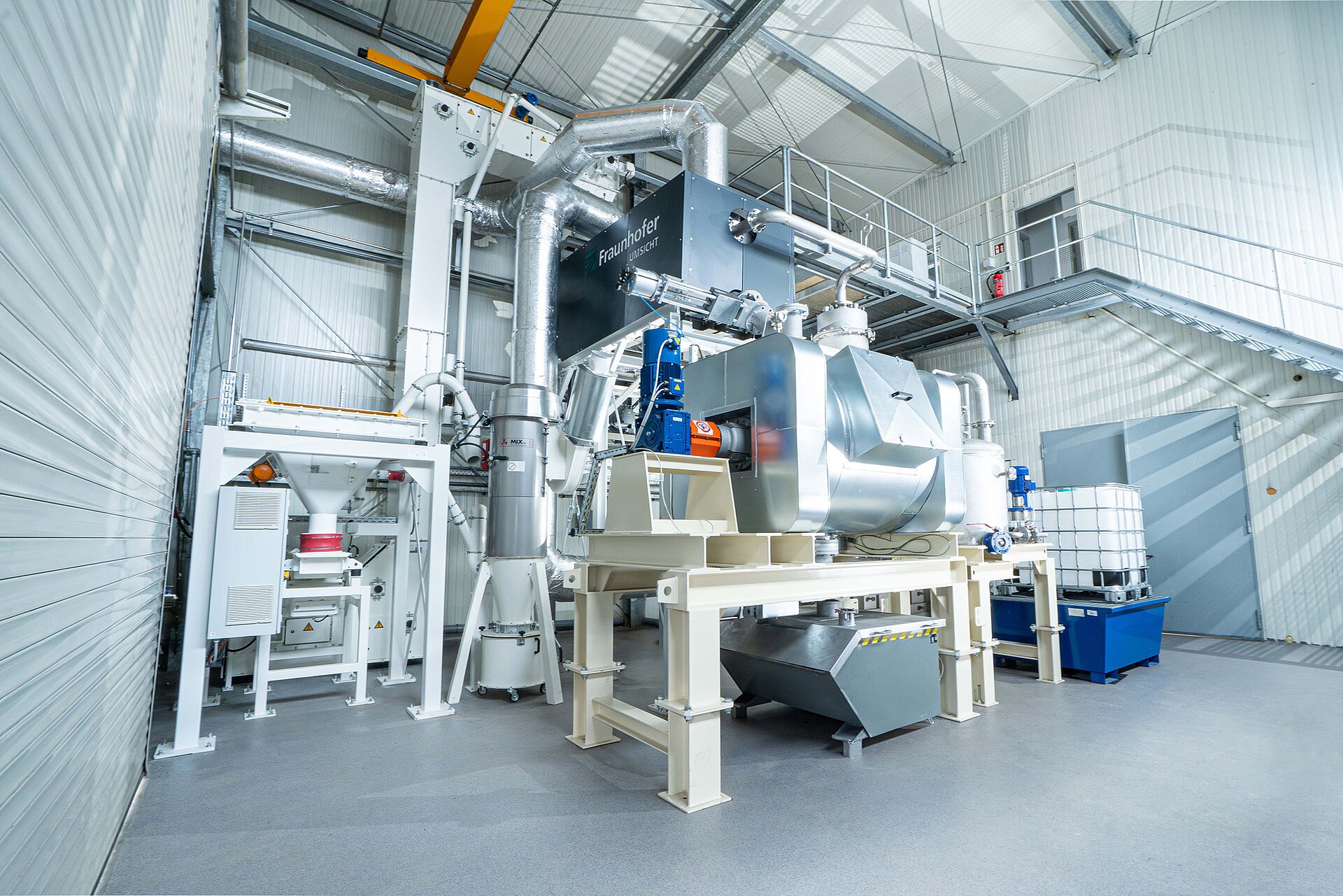
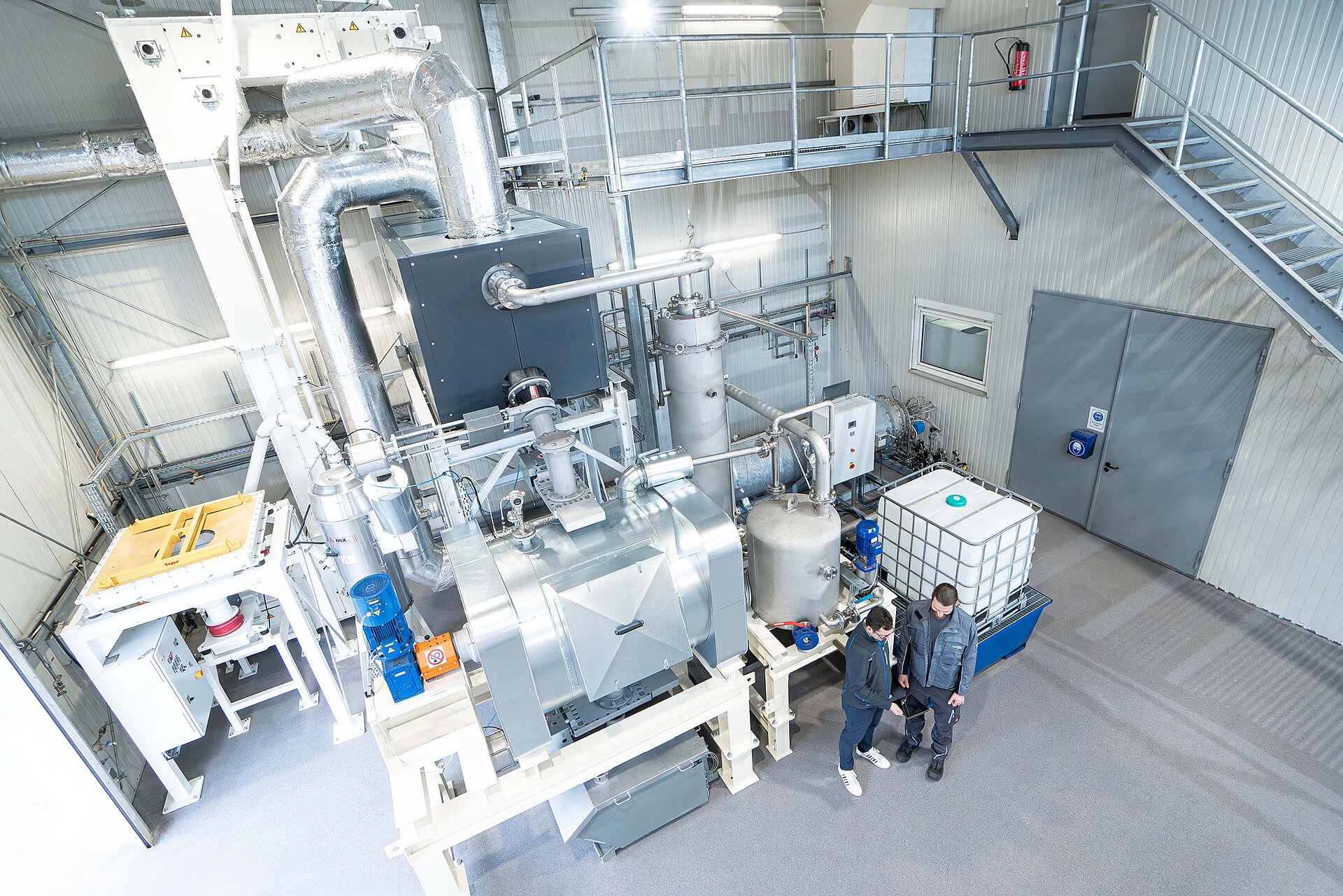
The InnoTeer Process
In the innovative InnoTeer process, the contaminated material is not incinerated in a carbon-intensive process as was previously the case but instead pyrolyzed at below 600 degrees Celsius without atmospheric oxygen. Once evaporated, the hydrocarbons are then condensed, collected, and made available for the process as high-calorific fuel. In this way, pollutant emissions can be significantly minimized, and the mechanical strength of the aggregate is retained for reuse in road construction.
Advantages of Asphalt Recycling with InnoTeer
Lower Costs
The decentralized recycling plants can be installed directly at the asphalt mixing plant sites, reducing transport costs. In addition, the process lowers the thermal energy costs of the connected mixing plant, as the heat from the upstream recycling process reduces energy consumption.
More Sustainability
By pyrolyzing the tar or pitch-containing binder, pollutant emissions are reduced significantly compared to carbon-intensive incineration, and the elimination of transport to the Netherlands saves even more CO₂. The waste heat can also be utilized directly.
Higher Quality
The strength of the rock is reliably preserved, enabling an impressive recycling rate of over 80 % of the input. The recycled mineral can be reused directly in marketable grain sizes, conserving resources and reduces costs.
FAQ
What Is Tar-Containing Asphalt?
Since the tar and pitch-containing road demolition material was reused in new asphalt mixtures from 1980 onwards, PAH contamination was found in large areas of the roads.
The recycling percentages of road demolition waste containing tar and pitch differ, as do the permissible limit values in the individual federal states in Germany. Today, bitumen is used as a binder.
What Is PAH Asphalt?
PAH asphalt is the term used to describe asphalt mixtures containing polycyclic aromatic hydrocarbons (PAHs).
Many of these are carcinogenic and can also cause other health problems. Tar and pitch contain many PAHs, so asphalt containing tar is automatically regarded as PAH asphalt.
Why Is It Necessary to Treat Road Demolition Waste Containing Tar?
Road demolition waste containing tar generally has a high content of polycyclic aromatic hydrocarbons (PAHs) and is considered carcinogenic, so since 2018, it has not been allowed to be used untreated in road construction. In 2023, the so-called "Mantelverordnung" created new framework conditions for the treatment of PAH-contaminated, tar-containing road demolition waste. The road demolition waste must be thermally recycled if the limits are exceeded.
How Does Decentralized Thermochemical Pre-Treatment Work On-Site?
The InnoTeer process enables decentralized thermochemical pre-treatment on the spot.
Asphalt containing tar and pitch is processed directly at the asphalt mixing plant and is immediately available for the new asphalt mix. The binding agent components (bitumen, tar, pitch) of the road demolition waste are not incinerated as before but pyrolyzed at below 600 degrees Celsius without oxygen. The tar and pitch components are decomposed thermally, and critical ingredients are rendered harmless. The aggregate remains undamaged, and larger quantities of higher-quality recycled material are produced. A synthesis gas is also created as a by-product, which can be used to generate energy.
What Are the Advantages of Thermochemical Treatment?
Thermochemical treatment using the InnoTeer process on-site eliminates the need for transportation abroad and significantly reduces carbon emissions. The carbon dioxide previously produced when the tar was burned is also wholly saved. Alongside the reduced transportation costs, companies also benefit from lower energy costs.
Your Contact Person: Mathias Fälber
Use InnoTeer’s advantages to your competitive advantage in asphalt recycling of tar-containing road demolition waste. I will be pleased to explain the savings potential for your company in a personal meeting.

